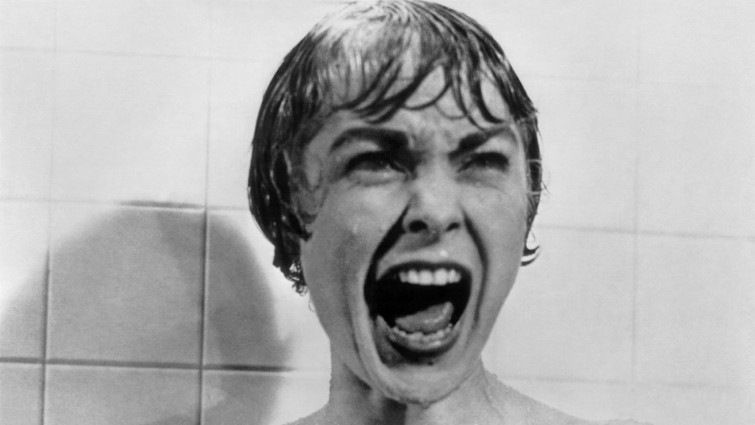

Member review

Psycho
The most famous, and possibly the most tense, of the films of suspense master Hitchcock, in which a woman is stuck in a remote hotel in...
Certificate
Duration109 mins
Review by
-
 Ella, 16
Ella, 16 - 5 reviews
The Pinnacle of Film-making
‘We all go a little mad sometimes. Haven’t you?’
1960’s ‘Psycho’ is perhaps one of the greatest films of the 20th century. The suspense filled thriller, prototypical of Hitchcock’s distinct style, is iconic within pop-culture, with its famous shower scene being one of the most memorable in history. If you’re a fan of the likes of ‘Halloween’ or ‘The Shining’, you’ll definitely love ‘Psycho’, as quite obviously the essence of this classic film has greatly influenced modern horror.
We begin the narrative by being acquainted with Marion Crane (Janet Leigh), a Phoenix secretary, who embezzles $40,000 from her employer’s client, in the hopes that it will overcome the money problem getting in the way of her hopes of marriage to lover Sam Loomis (John Gavin). She impulsively makes the decision to flee her everyday life with the gigantic sum of money in hand to help her out along the way. Eventually, after a long run from the law, Marion winds up at the Bates Motel where she meets a very peculiar hotel manager, Norman Bates (Anthony Perkins), who is seemingly under domination of his forceful “mother”.
The narrative of the film is highly impressive as it subverts Classical Hollywood tropes, twisting and playing on our expectations. Unexpectedly taking us into another strand of the story we didn’t expect. It is unconventional, and highly effective for it, as the shocked viewer is drawn into the story from sheer astonishment, and so naturally have a thirst to learn more.
Along with the narrative, one of the most remarkable aspects of this film is Anthony Perkins performance, which I think still holds up today. Perkins exerts this awkwardness which on first impressions, makes us feel empathy towards him as we are presented with a character that is oppressed by his loathsome “mother”. The scene in which he eagerly watches the car sinking into the bog, makes us feel on edge as we, at this point, are rooting for this socially awkward character. Janet Leigh also does a satisfactory job as being emblematic of the everywoman. A character we can relate to, because we are forced to, by her character arc, consider whether we would have done the same thing if we were in her situation. This moral judgement that has to be made is perfectly shown visually through the shot of Marion’s bed which swoops gradually from the money Crane was supposed to deposit, to a suitcase (symbolic of her running away), which lays out both the amoral and moral roots Marion could take. Point of view shots are also used within the scene, to force us to look at the situation from Marion’s perspective and fully comprehend her final decision. The score in this section is also highly effective, as it has an ominous tone, narratively foregrounding the unethical choice Marion will take.
In fact, the score is another highly effective micro feature of this film. Herrmann’s non-diegetic additions are truly iconic as the foreboding, perilous strings foreshadow the harsh twists and turns the film will subsequently take. The music of ‘Psycho’ is one of its most recognisable features, and it even acts a supplement for the visuals , especially in the shower sequence where the high pitch notes mimic the movement of a blade. The score always adds something more to the visuals, making the situation at hand seem much more exciting and believable.
Similarly, the overuse of low-key lighting doesn’t detract from our availability to view the action, and is highly effective in constructing an eerie ambiance which cleverly sets the overall tone. This dull lighting fits in perfectly with the setting, as the prospect of an almost abandoned hotel is chilling, and the lighting aligns with this expectation.
Overall, I would argue ‘Psycho’ is a must-see for all film fans as it embodies Hitchcock’s classic archetypal traits, and has clearly influenced not just modern horror, but modern filmmaking. The iconic non-diegetic score, subtle but astute performances from both Leigh and Perkins, and innovative cinematography are highly complementary to Hitchcock’s unique vision, and help make ‘Psycho’ a game-changing film.